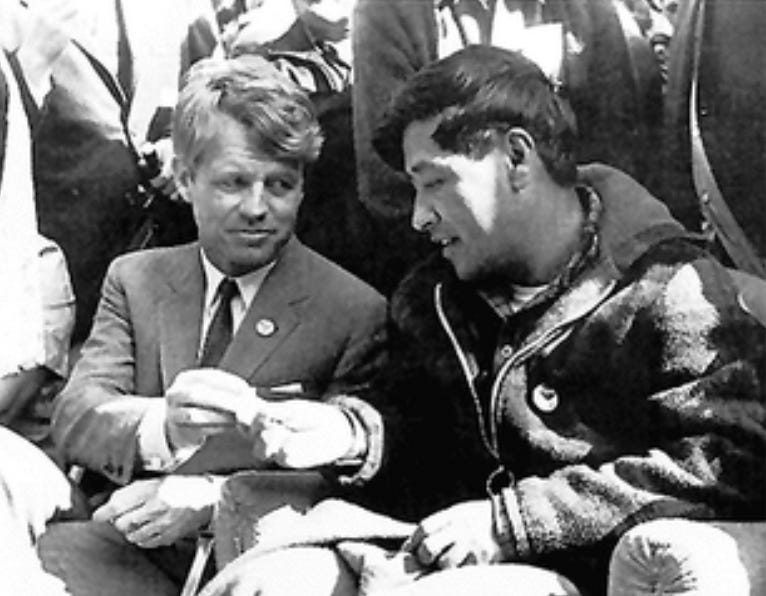Fifty-six years ago, Senator Robert F. Kennedy flew into Delano, California. RFK was on the cusp of announcing his presidential campaign, but on this Sunday, Kennedy was there at the request of Cesar Chavez, who had begun fasting 24 days earlier.

Cesar Chavez, the co-founder of the United Farm Workers (UFW), was included in a court complaint filed by California grape growers. It alleged the UFW, who were on strike, had been threatening farm employees. Chavez responded with an indefinite fast to rededicate the union to the principals of nonviolence. No matter how worthy the cause of improving the lives of the farm workers, violence was unacceptable as a means to an end.
This question of violence vs. nonviolence was framed against a larger debate—America’s role in Vietnam. A half million American soldiers—many drafted—were stationed there, and more than 20,000 had returned in body bags. If the violence in Vietnam was wrong, Chavez had said, it was just as wrong in America. Kennedy strongly agreed—opposition to the war would be an essential part of his campaign—and praised Chavez for organizing the UFW with nonviolence.

On March 10, about 8,000 people gathered in the county park to witness the breaking of the fast as Chavez accepted a piece of bread from Robert Kennedy. He had lost 35 pounds and was too weak to address the crowd, so a prepared statement was read. (Although I’ve never fasted quite this long, I believe this was because he failed to supplement electrolytes like Gandhi did, hewing to a “strict fast of water only.”)
Chavez’s statement still resonates with me, and the fast for peace that serves as the hub for the American Union model for reform.
We are gathered here today not so much to observe the end of the Fast but because we are a family bound together in a common struggle for justice. We are a Union family celebrating our unity and the nonviolent nature of our movement. … The Fast was first for me and then for all of us in this Union. It was a Fast for nonviolence and a call to sacrifice. …
When we are really honest with ourselves we must admit that our lives are all that really belong to us. So, it is how we use our lives that determines what kind of men we are. It is my deepest belief that only by giving our lives do we find life. I am convinced that the truest act of courage, the strongest act of manliness is to sacrifice ourselves for others in a totally nonviolent struggle for justice.
To be a man is to suffer for others. God help us to be men!
When have you suffered for others?


